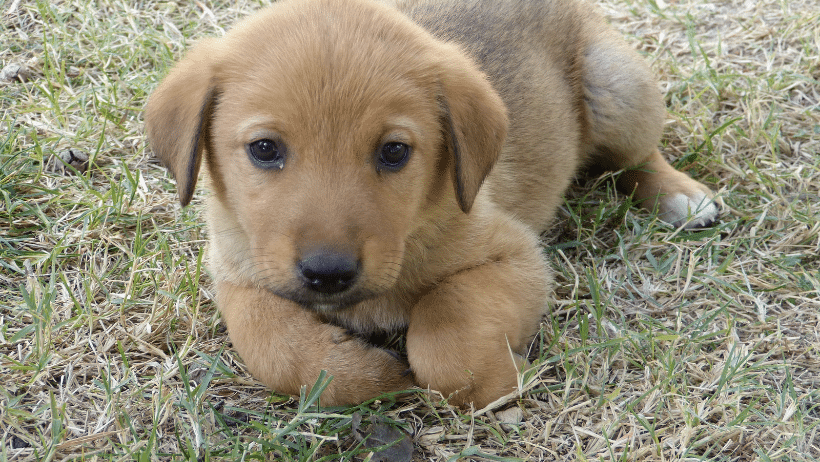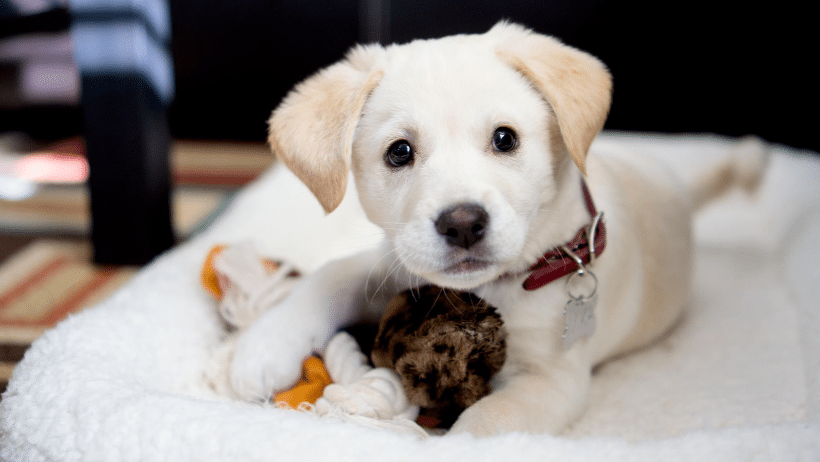
Puppy anxiety is a common issue among young dogs that can cause distress for both the animal and its owners. Anxiety can manifest in a variety of ways, including destructive behavior, vocalization, or physical symptoms like shaking or panting. However, there are many techniques that owners can use to reduce their puppy’s anxiety and improve their quality of life. In this blog post, we will explore the causes and signs of puppy anxiety, as well as strategies for managing and preventing it.
Causes of Puppy Anxiety:
There are several reasons why a puppy may experience anxiety, including:
- Separation anxiety: When a puppy becomes distressed or anxious when separated from its owner or other familiar people or pets.
- Fear and phobias: When a puppy experiences intense fear or panic in response to specific stimuli, such as loud noises or unfamiliar people.
- Lack of socialization: When a puppy is not exposed to a variety of people, animals, and environments during its critical socialization period, which can lead to fear and anxiety.
- Illness or pain: When a puppy is in discomfort due to an underlying medical condition or injury, which can lead to anxiety and other behavioral changes.
- Traumatic experiences: When a puppy experiences a traumatic event, such as an attack by another animal, that can lead to lasting fear and anxiety.
Signs of Puppy Anxiety:
Puppies can exhibit a variety of physical and behavioral signs when experiencing anxiety. These may include:
- Panting, drooling, or excessive licking
- Shaking or trembling
- Whimpering or howling
- Hiding or trying to escape
- Aggressive behavior
It’s important to note that some of these behaviors may also be normal puppy behaviors, so it’s important to pay attention to any changes in your puppy’s behavior or routines.
How to Reduce Puppy Anxiety:
If you suspect that your puppy is experiencing anxiety, there are several things you can do to help. These include:
- Establish a routine: Puppies thrive on routine and predictability, so establishing a consistent daily routine can help reduce anxiety.
- Provide a safe and comfortable environment: Creating a secure and comfortable environment with familiar objects and scents can help your puppy feel safe and reduce anxiety.
- Encourage positive associations: Associating positive experiences with things that previously caused anxiety can help your puppy learn to feel more comfortable.
- Use training and behavior modification techniques: Training and behavior modification techniques can help your puppy learn new coping skills and behaviors that can reduce anxiety.
Consider medication or supplements: In some cases, medication or supplements may be necessary to help manage your puppy’s anxiety. It’s important to consult with your veterinarian to determine the best course of action.
Can Puppies Grow Out of Anxiety?
It’s possible for puppies to grow out of anxiety as they mature and gain more life experience. However, this is not always the case, and the
Is It Normal to Feel Anxious When You Get a Puppy?
It’s normal to experience some degree of anxiety when bringing home a new puppy. Puppies require a lot of care, attention, and training, and adjusting to a new routine can be stressful. It’s important for owners to take care of themselves and seek support from family, friends, or professionals if needed.
What Age Are Puppies Most Difficult?
Puppies go through several stages of development, and each stage presents unique challenges. The most difficult age for puppies can vary depending on factors like breed, individual temperament, and the owner’s experience level. However, the first few weeks and months of a puppy’s life are generally the most challenging, as they require constant supervision and socialization.
Puppy anxiety is a common issue that can cause distress for both the animal and its owners. However, there are many strategies for managing and reducing anxiety, including establishing routines, creating a comfortable environment, and using training and behavior modification techniques. While some puppies may grow out of anxiety as they mature, ongoing support and care are important for improving their quality of life. It’s normal to feel anxious when getting a new puppy, and it’s important for owners to take care of themselves and seek support as needed. Finally, the most difficult age for puppies can vary, but the first few weeks and months of a puppy’s life require extra attention and care.
There are a number of good resources online so you can assess if anxiety is a problem for your dog. If it happens that your dog does have an issue with anxiety there is lots of help available. There are numerous good books that can teach you how to cure your dog from anxiety and return to a contented and excellent relationship with your dog.





